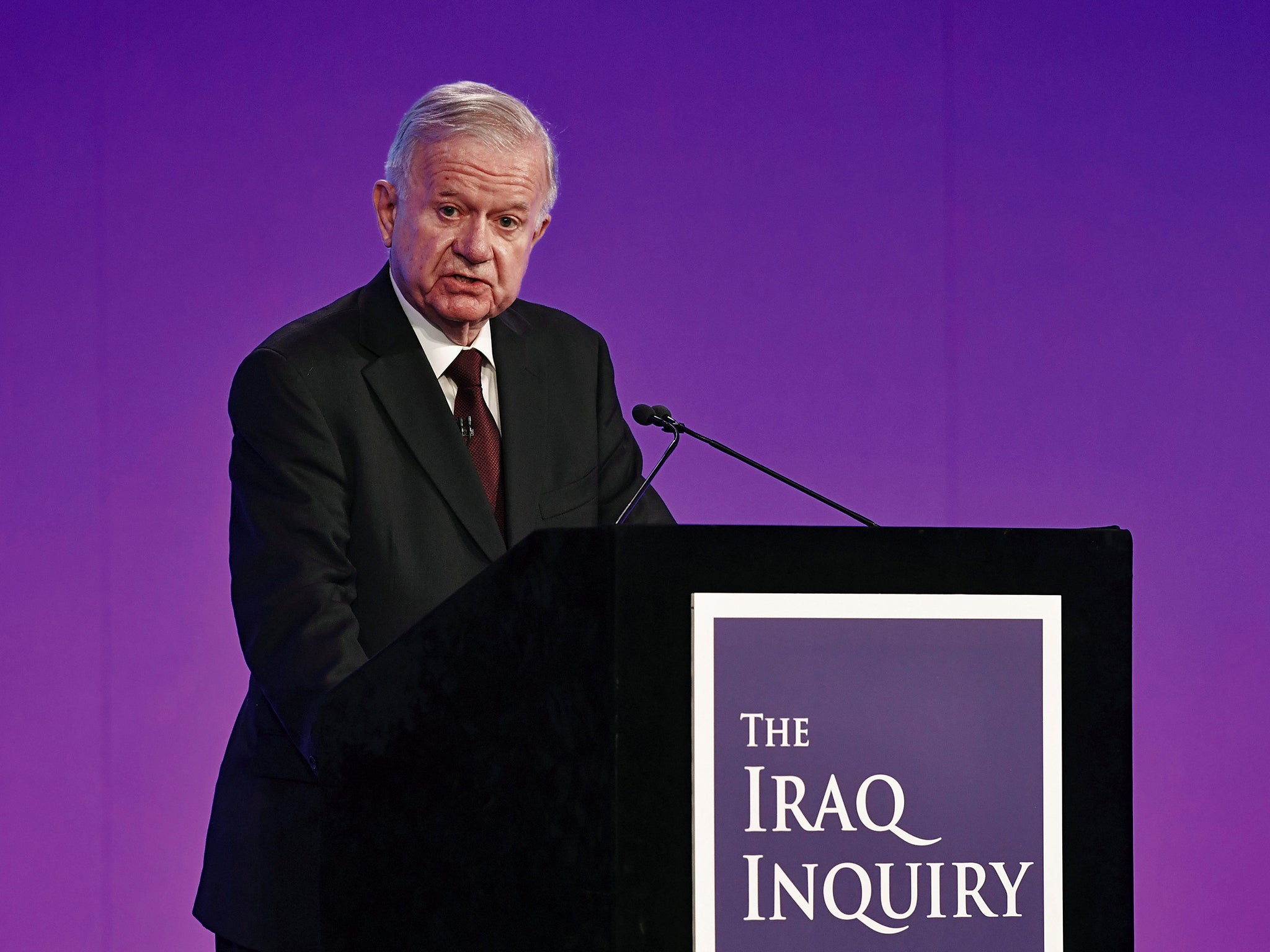Chilcot: Five things we learned from the Iraq War report we didn't know before
Official report delivers scathing verdict of military intervention that 'went badly wrong'

The long-awaited official report into Britain's involvement in the Iraq War has delivered a scathing verdict on Government ministers' justification, planning and conduct of a military intervention which "went badly wrong, with consequences to this day".
Former prime minister Tony Blair presented the case for war in 2003 with "a certainty which was not justified" based on "flawed" intelligence about the country's supposed weapons of mass destruction (WMD) which was not challenged as it should have been, found report author Sir John Chilcot.
Follow the latest live updates
Here are five things we learned from the inquiry that we didn't know before:
1. The danger of internal strife, regional instability and the rise of al-Qa’ida in Iraq “were each explicitly identified” before the war. Six months before the invasion, Foreign Office and intelligence reports warned that war would create an “easier environment for terrorists” and the destabilisation of Iraq.
2. Eight months before the invasion, Tony Blair told George Bush in a remarkable private memo released to the Chilcot inquiry: “I will be with you, whatever.”
3. Tony Blair did not press the United States for definite assurances about its plans for the aftermath of the invasion. Chilcot concluded that Blair "overestimated his ability to influence US decisions on Iraq".
4. Tony Blair and George Bush were openly discussing toppling Saddam Hussein as early as December 2001, after the UK and US had launched military action in Afghanistan. Blair told Bush in a memo: “If toppling Saddam is a prime objective, it is far easier to do it with Syria or Iran in favour or acquiescing rather than hitting all three at once, I favour giving these two a chance at a different relationship.” Blair said that if the action in Afghanistan gave new hope to people, "in particular we shall have given regime change a good name which will help us in our argument over Iraq".
5. The Cabinet was not told about the uncertainties over whether the invasion of Iraq was lawful. A “perfunctory” note about the legal position was not discussed by the Cabinet. The Attorney General’s draft legal advice was not shared with ministers responsible for the military preparations.
Subscribe to Independent Premium to bookmark this article
Want to bookmark your favourite articles and stories to read or reference later? Start your Independent Premium subscription today.

Join our commenting forum
Join thought-provoking conversations, follow other Independent readers and see their replies